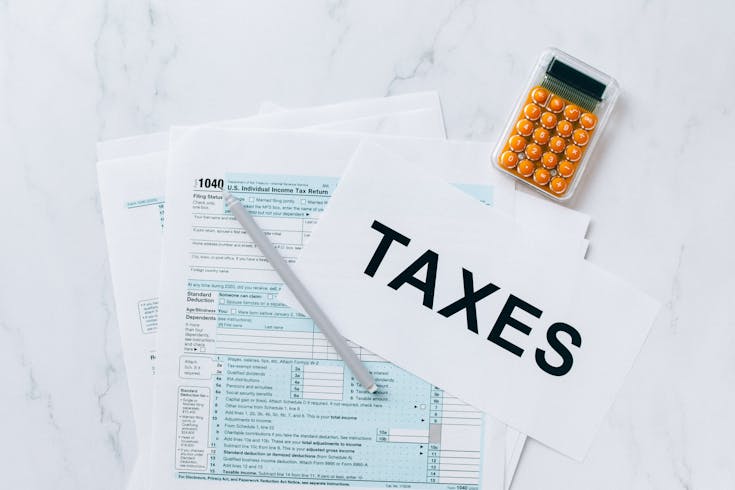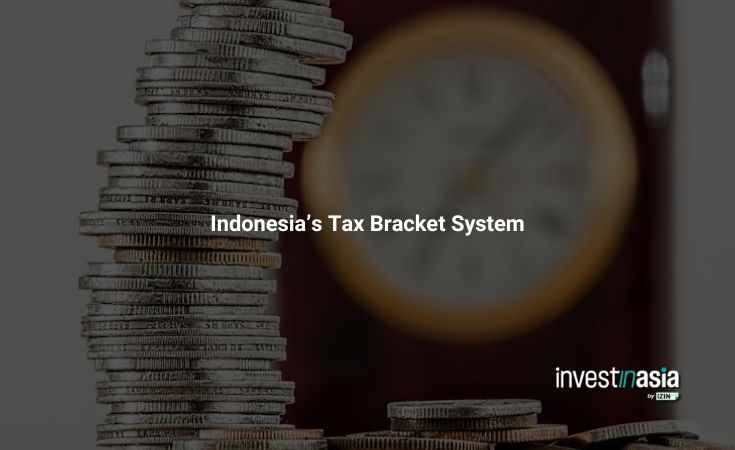Indonesia’s tax bracket system is a progressive income taxation framework established under the Harmonization of Tax Regulations Law (UU No. 7/2021) to classify individual income into tiered taxable ranges. The system defines income thresholds with rates from 5% to 35% to ensure equitable tax distribution for residents and qualifying foreign taxpayers. Indonesia’s Directorate General of Taxes (DJP) uses this multi-bracket structure to align tax liabilities with earning capacity, support fiscal stability, and reflect national economic conditions. Key income segments, such as the IDR 60 million, IDR 250 million, and IDR 500 million thresholds, serve as benchmark brackets for calculating annual income tax under the latest regulations.
This article provides an overview of Indonesia’s current tax brackets, effective tax rates by income level, and a sample calculation to help foreign individuals, corporations, and investors understand their tax obligations in Indonesia.
Also read: Indonesia Tax Rate: An Updated Guide
What Is a Tax Bracket?


A tax bracket is a range of income to which a specific tax rate is applied. Under this system, income is divided into “brackets” or levels, with each level taxed at a progressively higher rate. For example, if there are five tax brackets with rates of 5%, 10%, 15%, 20%, and 25%, an individual whose income falls within the third bracket would pay 5% on the first bracket’s income range, 10% on the second bracket, and 15% on the third bracket.
This progressive tax system aligns with the goal of tax fairness by having higher-income individuals contribute a larger portion of their income as taxes compared to lower-income earners.
Also read: Indonesia Corporate Tax Rate: Navigating the Business Landscape
Latest Indonesia’s Tax Brackets
Indonesia’s current tax brackets are outlined in the Harmonization of Tax Regulations Law (UU No. 7 of 2021), which updated prior regulations to enhance the equity and efficiency of the tax system. Below are Indonesia’s five income tax brackets for 2024:
- Income up to IDR 60 million: 5%
- Income over IDR 60 million to IDR 250 million: 15%
- Income over IDR 250 million to IDR 500 million: 25%
- Income over IDR 500 million to IDR 5 billion: 30%
- Income over IDR 5 billion: 35%
These tax brackets apply to both Indonesian residents and foreign nationals who meet certain residency requirements, including those working or owning businesses in Indonesia.
Also read; Indonesia’s PPN Guide: Rules, VAT Rates, Calculation
How to Calculate Taxes Based on Indonesia’s Bracket System


To illustrate how Indonesia’s tax bracket system works, consider the following example of Mr. Budi, who has an annual taxable income of IDR 300 million. Here’s how Mr. Budi’s tax is calculated:
First Bracket (up to IDR 60 million) at 5%:
IDR 60,000,000 × 5% = IDR 3,000,000
Second Bracket (IDR 60 million to IDR 250 million) at 15%:
(IDR 250,000,000 − IDR 60,000,000) × 15% = IDR 190,000,000 × 15% = IDR 28,500,000
Third Bracket (IDR 250 million to IDR 300 million) at 25%:
(IDR 300,000,000 − IDR 250,000,000) × 25% = IDR 50,000,000 × 25% = IDR 12,500,000
Summing these up gives Mr. Budi’s total income tax:
IDR 3,000,000 + IDR 28,500,000 + IDR 12,500,000 = IDR 44,000,000
Therefore, Mr. Budi’s total tax payable would be IDR 44,000,000.
Also read: Filing Annual Corporate Tax Returns in Indonesia (Easy Guide)
Potential Revisions to Indonesia’s Tax Bracket Structure
The Indonesian government has proposed changes to the tax bracket structure as part of a broader fiscal policy reform, aimed at creating a more robust and fair taxation system. International entities like the World Bank have also supported this approach, suggesting additional tax brackets to accommodate Indonesia’s growing economy and income diversity.
Should these proposals be enacted, they would likely modify the income thresholds and tax rates, impacting individuals and corporations alike.
Also read: What is LKPM Reporting in Indonesia: Essential Guide
Rely on an Experienced Tax Consultant for Your Tax Matters
Understanding Indonesia’s tax obligations can be challenging due to its evolving laws and policies. Foreign businesses and individuals often benefit from working with local tax consultants who offer expertise on regulatory compliance, tax calculations, and legal obligations.
Partnering with a reputable consultant like InvestinAsia’s Indonesia tax consultant and compliance services can simplify your tax management and ensure full compliance with Indonesian tax laws, allowing you to focus on your business growth and objectives.
Our experienced team of professionals is ready to assist you in every tax matter, such as:
- Accounting and tax reporting services in Indonesia
- Indonesia Payroll Service
- Indonesia LKPM Reporting Service
- Indonesia VAT Taxpayers Registration
Contact us now for FREE consultation and special package!
references:
- pajakku.com
- msmconsulting.co.id
- pertapsi.or.id



